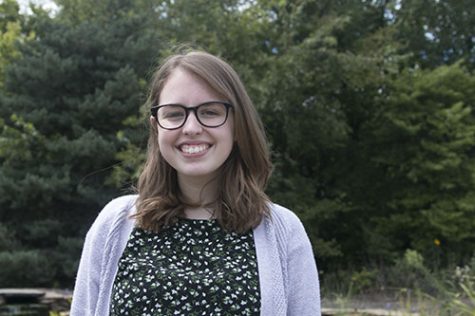Political discussion at DHS is too negative
The results of the 2016 presidential election have caused massive debate across the country, on social media and even in mass protests on the streets. The halls of De Soto High School have been no exception, with students discussing the election in class, at the lunch table and on Twitter.
While my own political beliefs are fairly evident on my Twitter, and most of my friends know exactly how I feel about the current political situation, I’ve realized over the past few days that I need to watch how I talk about politics. It’s far too easy for a constructive conversation to snowball into an argument based entirely on insult, in which neither side has something constructive to say. I’ve witnessed several situations like this at DHS over the past week. On the morning after the election, I saw a student walk through the commons wearing a hat supporting Donald Trump. The student received several cheers, but there were also a few rude expletives aimed at the student as well. This kind of commentary is not constructive in any way, and it only makes the atmosphere in the DHS hallways more toxic.
I’m not saying that students should take down their Bernie bumper stickers, retire their Trump hats and never bring up political issues at the lunch table again. Many teenagers are passionate about the candidates and issues they support, and for a lot of DHS students, this is the first election in which they are old enough to truly form an opinion. I was 12 during the last presidential election, and my political knowledge didn’t extend far beyond the “Obama Llama Song.” This is the first election I’ve experienced where I, and many of the people around me, actually have an opinion. The past week has been a learning experience on how exactly I should express my opinions.
I’ve caught myself saying “I just can’t believe Donald Trump is going to be president” several times over the past week, as well as posting things on social media that weren’t in the spirit of respecting others’ opinions. While this kind of conversation and all the jokes I make along with it is okay with my friends who share the same political views, it’s not the kind of approach I should use with friends who don’t agree with me. While I used to believe that the views opposing mind were illegitimate and not worthy of respect, I’ve discovered that being completely closed and hostile to those against me is not the best way to bring about change. Conversations about politics are tricky, and I’ve realized that it’s important to approach these issues with an open mind. While talking with someone who supported a different candidate than I did at lunch probably won’t make me change my entire system of beliefs, I want to be able to listen openly rather than desperately trying to prove that I’m right. I was upset by the last two years of campaigning, which was full of personal attacks and “delete your account” social media moments from both candidates. I’m trying to approach my own political conversations with more understanding and less personal attacks, and focus on explaining why I believe what I do, rather than endlessly bashing the other side.
I’ve seen many personal attacks on social media, but there have also been many students kindly and respectfully expressing their opinions. While politics continues to become more partisan, nasty and downright mean, many DHS students, including myself, are realizing that respect is essential when discussing politics. While we don’t need to keep our political beliefs to ourselves or keep politics out of school altogether, if we all keep in mind the way in which we phrase our opinions affects others, DHS will become a much more positive environment for students on all ends of the political spectrum.


